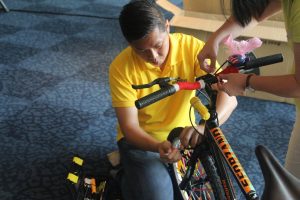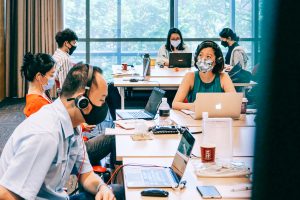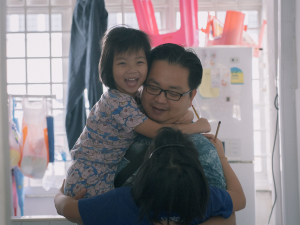All images by Nicky Loh for RICE Media.
Like many of us, young Michelle Lim tied success to money. Like many of us, she saw wealth as a way out to a better life for her family — at one point, she even dreamt about becoming a millionaire by 30.
In case you think this is your typical rags-to-riches tale, it is not. This is a story about a woman who found her calling in uplifting marginalised communities after the chase of material success proved empty. The millionaire dream was eventually dropped in exchange for something closer to her heart: making positive social impact.
Michelle grew up in Malaysia, where she witnessed her parents work tirelessly to make ends meet. A job, to them, was merely a means to pay for life’s necessities. She was determined to change things around.
With hope in her spirit, she moved to Singapore at the age of 17 to pursue her education and to secure a loftier future.

“I couldn’t even speak English fluently when I first arrived here. I didn’t dare speak up and I was always the odd foreigner in class,” she confesses.
Despite the setbacks, Michelle strived for a traditional route of success in Singapore. She poured her time into studying; eventually conquering ‘A’ levels before graduating university as an economics major and becoming one of the many bankers who work at a swanky office in the CBD.
It soon became clear, however, that she was on an unsuitable path.
Ditching a Life of Crunching Numbers
Since day one as a banker, Michelle felt empty and it was impossible for her to ignore that gnawing feeling. Her colleagues, she says, were akin to soulless robots that lacked even the littlest spark of genuine joy.
Michelle had spent far too many years chasing a job that looked and sounded fancy on paper. But what’s the use if all she felt was dread?

Deep down, she yearned to work on something larger than crunching numbers on a screen. So she quit her job within 24 hours. Without a clear plan in sight.
That gutsy decision would later transform her life’s trajectory, but not without months of anxiety during the initial months of joblessness. Not only was she penniless, but she also had to deal with both parental and societal pressures to get a “stable job” as soon as possible.
Quitting is never a good look in a traditional Asian household — it came with the usual naggings about settling down and becoming financially stable as soon as possible. She knew, however, that her parents came from a place of love and care.
But that was before. Today, 48-year-old Michelle is the CEO of Make The Change (MTC), a Social Enterprise that provides creative solutions, education and training programmes for marginalised communities.
Some of MTC’s notable initiatives include programmes designed for Persons with Disabilities (PWDs), as well as digital arts and online courses for refugees seeking asylum around the region. It’s essentially made up of passionate creatives looking to drive social good.

The roots of MTC can be traced from when Michelle first started off as an educator at M.A.D. School in the early 2000s after leaving her job as a banker.
According to her, the advertising and design school had the chance to work with the Institute of Mental Health (IMH) for an advertising campaign in 2012. It gave students an opportunity to leverage their creativity into meaningful marketing materials with messages that drove awareness to youths’ mental wellness.

As an educator, Michelle learned that not all children are given the same opportunities in life. She advocates that everyone is inherently creative and that every individual should be given the opportunity to chase their dreams.
“Charity begins from home too,” she says, eyes twinkling. “It’s one of the reasons why I try to apply empathy when raising my teenage son.”
When asked about her son’s current aspirations, Michelle shares that he’s still taking it slow and figuring things out.
“And that’s fine by me! I hope that more parents will be supportive of their children’s dreams. Youths should also be less pressured by the viewpoints of others, but rather learn to follow their heart.”
No One is Perfect. It’s High Time Leaders Self-Reflect.
The work she did with multiple non-profit organisations organically paved the way for MTC’s birth in 2012.
From how Michelle sees it, being a Social Entrepreneur is about building a sustainable business that goes beyond just a profit-chasing machine.
Vulnerability and humility are no strangers to her. There’ll always be room for improvement; even if one has seemingly “made it” in life.

Just as I was pointing out the successes of MTC, Michelle doesn’t sugarcoat reality. “I can’t claim to have achieved a lot. There may be great initiatives thus far, but there are also ones that didn’t make the cut. But rather than seeing them as failures, it’s better I see them as lessons instead.”
Her grit is no different from the early days when she would force herself to read an entire English newspaper even without knowing much of the words.
Walking the Talk of Goodness Both Externally and Internally

Over the years, MTC has earned a reputable name with numerous awards and accreditations — they’ve been listed as a Business for Good and even received the President’s Challenge Social Enterprise Award.
Just this year, they’ve also been recognised as a Certified B Corporation. It’s a label given only to businesses that have met the highest standards of verified social and environmental performance, public transparency, and legal accountability.

Stepping into Michelle’s cosy office, what first caught my eye were piles of self-help books. Pulling out a notebook, she tells me that journaling is something that she does on a daily basis to keep herself centred. It was telling of her commitment to personal development.
As any good leader will tell you, people only get better by doing.
All this has led her to constantly try new things, including signing up for the Company of Good Fellowship — a five-month programme designed for leaders who are looking to catalyse change with their organisations.
One of the biggest reasons that pushed Michelle to sign up was the chance to expand and learn from fellow leaders like herself.
“Every stakeholder is important in the ecosystem, and I wanted to understand how different people transformed their organisations as a force for good,” she explains.
Just as she hoped, Michelle found camaraderie with a tribe of like-minded, socially-driven leaders over the course of the Company of Good Fellowship. Getting to network and learn from peers across different industries, to her, was one of the biggest takeaways.
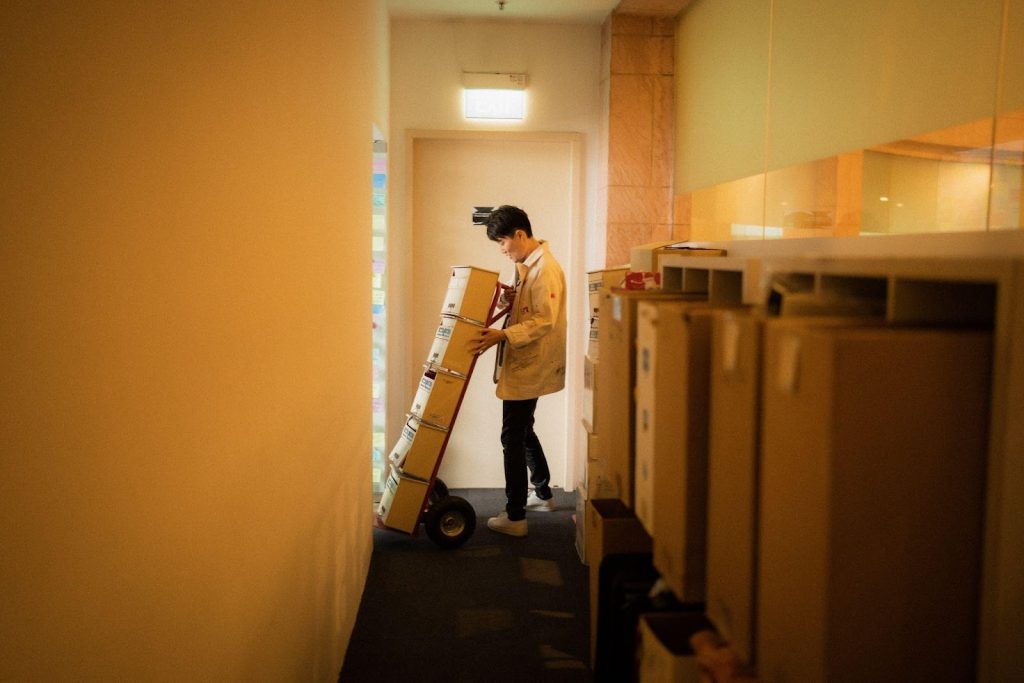
“To be honest, it can get lonely on the business executive level too, and sometimes you just need people to encourage you on the journey within a judgement-free zone,” she says.
Her coursemates comprised a diverse mix of company leaders from SMEs to MNCs (including giants like Twitter and Amazon); and even those from government agencies — all of whom have shared case studies of unsuccessful projects and how they’ve managed to overcome the constraints of their organisations.
“Till this day, I still keep in touch with those I’ve met. They’ve given me so many fresh perspectives!”
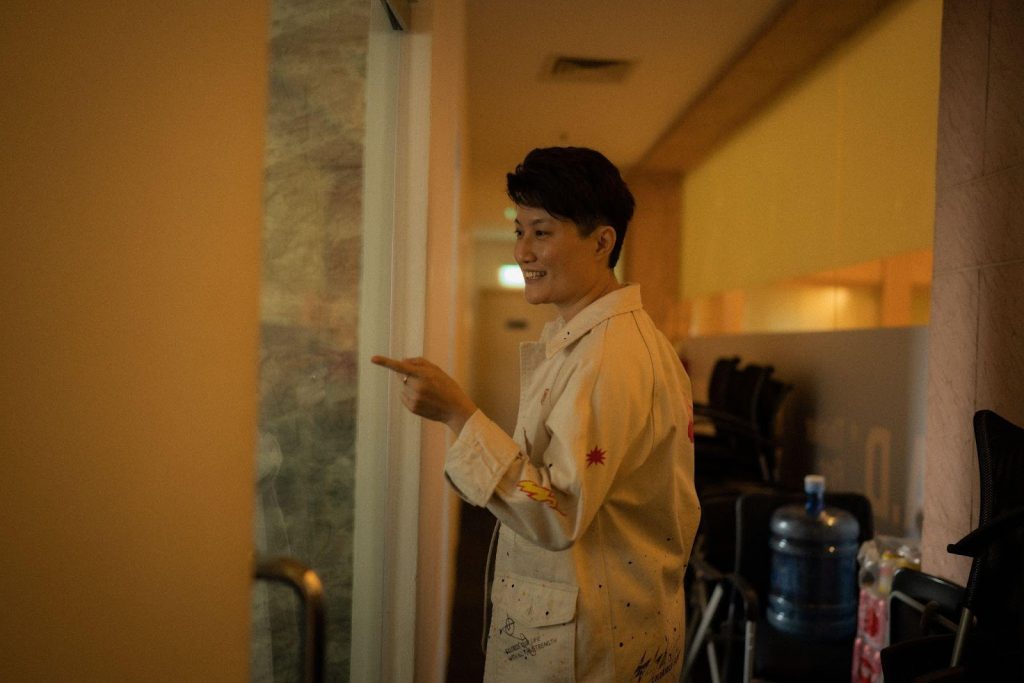
Meaningful collaborations aside, the programme also taught her to always return to the company’s value proposition. Sounds simple, yet it was a much-needed reminder. MTC is built on the premise of doing good for others, and cannot deviate from that mission.
“It would make no sense,” says Michelle, “if organisations donate large sums of money externally but are ignoring their most important stakeholders: employees.”
“I would like to encourage all organisations, especially those in creative industries, to start off with the right culture. Take a look at HR policies, for instance — are they in place to ensure that staff are well-supported? It’s always important to listen.”

On top of everything, she’d also learnt practical business applications, such as the 4 ‘I’ Framework. This has greatly helped reshape the way she evaluates the sustainability of MTC’s initiatives.
“In this day and age, all companies should give to society. It’s not only the right thing to do, but it’s also the smart thing to do in terms of stakeholder engagement.”
In other words, you don’t need to be a complete altruist in order to make a social impact. With the right systems, processes and incentives in place, people and profitability goals don’t always have to be in conflict. They can co-exist.
It’s the Authenticity That Counts
Too often business leaders can forget themselves in the process of building their company. But the less they are convinced of their exceptionalism, the higher their ability to spot blindspots.
Learning strategic frameworks is only step one to improving things, but it takes a special someone who actually puts theory into practice.
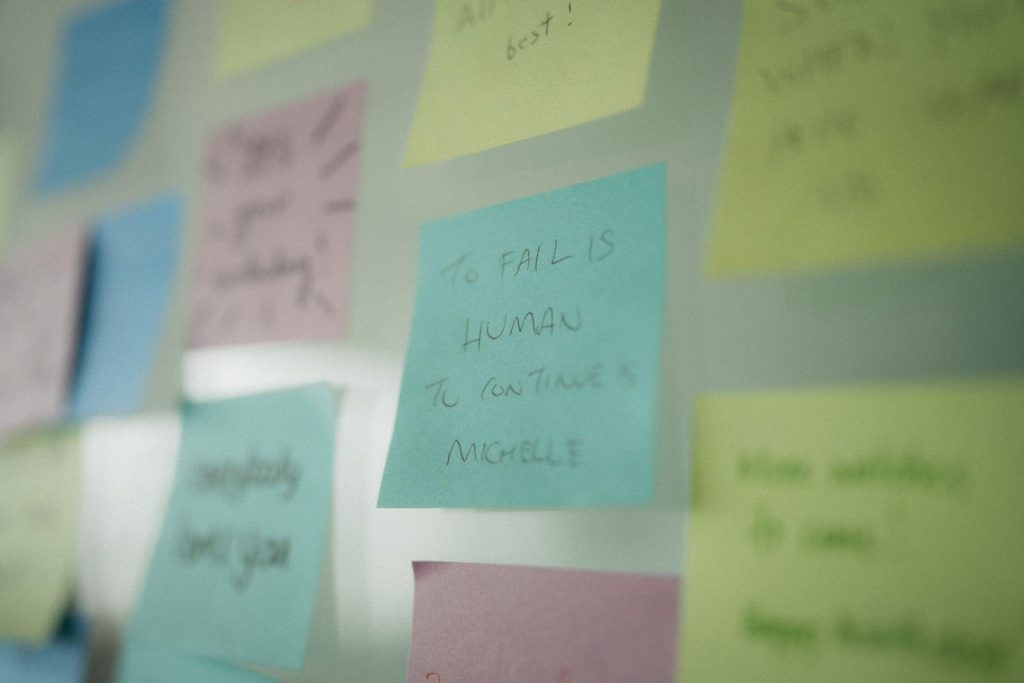
“Sure. I may be a CEO, but on my name card, it reflects ‘changemaker’,” she adds. “We’re all changemakers at MTC.”
In speaking to Michelle, I sense that she isn’t a fan of superficial efforts — year-end CSR events that are neither genuine nor sustainable, or discussions on mental wellness that remain only as discussions, just to name a few. Rather, she stressed the importance for leaders to walk the talk.
“If you are vulnerable, and if you are authentic, people will recognise that. I try to always become a better version each day; for both myself and the team.”
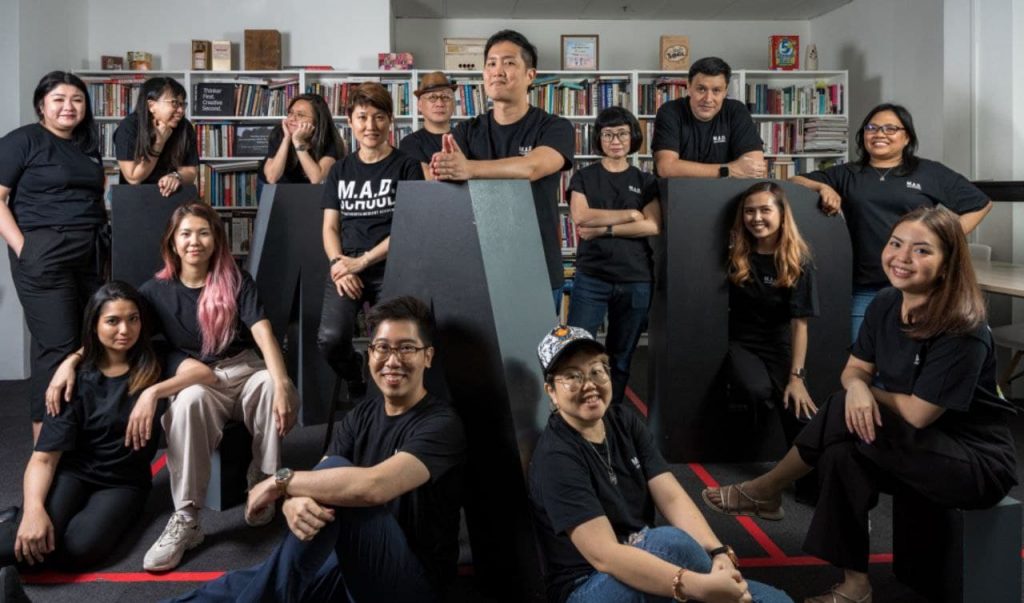
While this may have been a profile story, Michelle makes it a point (even reminds me via text) to shine a light on her team. It has never crossed her mind to claim full credit for the company’s growth.
“Without them, I am nothing.”
These little efforts go a long way in cultivating trust, connection and respect. While the future of business may be uncertain and problems can still arise at any moment, I suppose all that’s left for leaders is to continue — continue learning and continue growing.
As it is, social entrepreneurs are people who do not tolerate the “us versus them” mentality that plague societies today. Transformation is possible, as Michelle puts it, if more people teamed up together like the Avengers for positive change.



